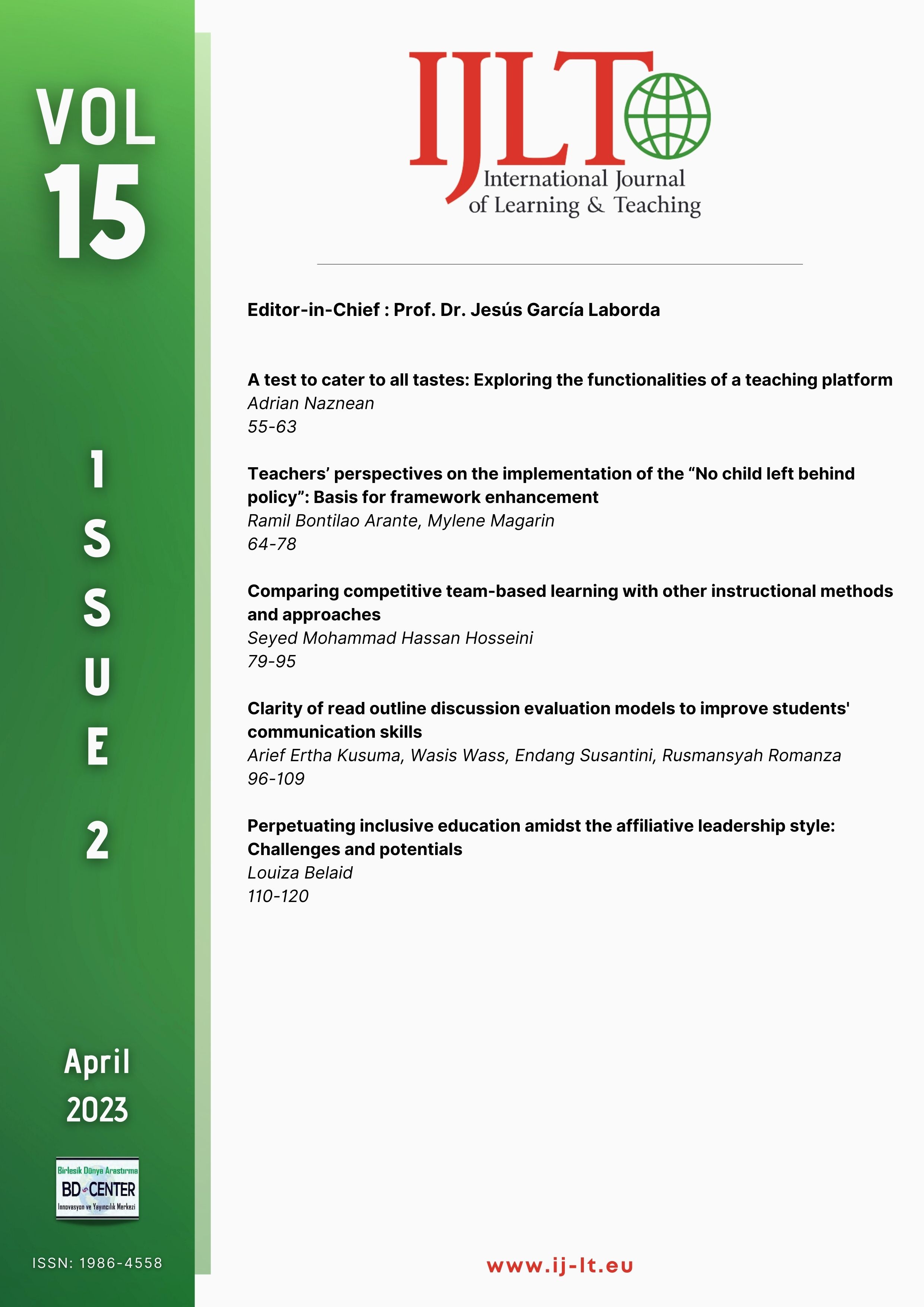Perpetuating inclusive education amidst the affiliative leadership style: Challenges and potentials
Main Article Content
Abstract
It has been advanced that an instructor who assimilates the affiliated values and beliefs will steadily prepare learners as individuals and respect learners’ needs and preferences. This research examines how the affiliative leadership style affects learners' inclusion in foreign language instruction. Students’ classroom integration is demanding; therefore, understanding their basic needs, and showing empathy and interest to aid them transcend their frailties and improve their performance are persistent traits of affiliative leaders that should be implemented to achieve the aforementioned aim. This study used an experimental method to analyze how the application of affiliative leadership style in class affects learners. As such the aforementioned style was applied as a teaching skill with third-year students at the university. Based on the results, it was concluded that the effectual applicability of this approach at university has created personal connections and has sustained, as well, a peaceful learning environment besides a positive teacher-learner positive rapport.
Keywords: Achievement; affiliative leadership style; students’ inclusion; resilience.
Downloads
Article Details

This work is licensed under a Creative Commons Attribution-NonCommercial-NoDerivatives 4.0 International License.
Authors who publish with this journal agree to the following terms:
- Authors retain copyright and grant the journal right of first publication with the work simultaneously licensed under a Creative Commons Attribution License that allows others to share the work with an acknowledgement of the work's authorship and initial publication in this journal.
- Authors are able to enter into separate, additional contractual arrangements for the non-exclusive distribution of the journal's published version of the work (e.g., post it to an institutional repository or publish it in a book), with an acknowledgement of its initial publication in this journal.
- Authors are permitted and encouraged to post their work online (e.g., in institutional repositories or on their website) prior to and during the submission process, as it can lead to productive exchanges, as well as earlier and greater citation of published work (SeeThe Effect of Open Access).
